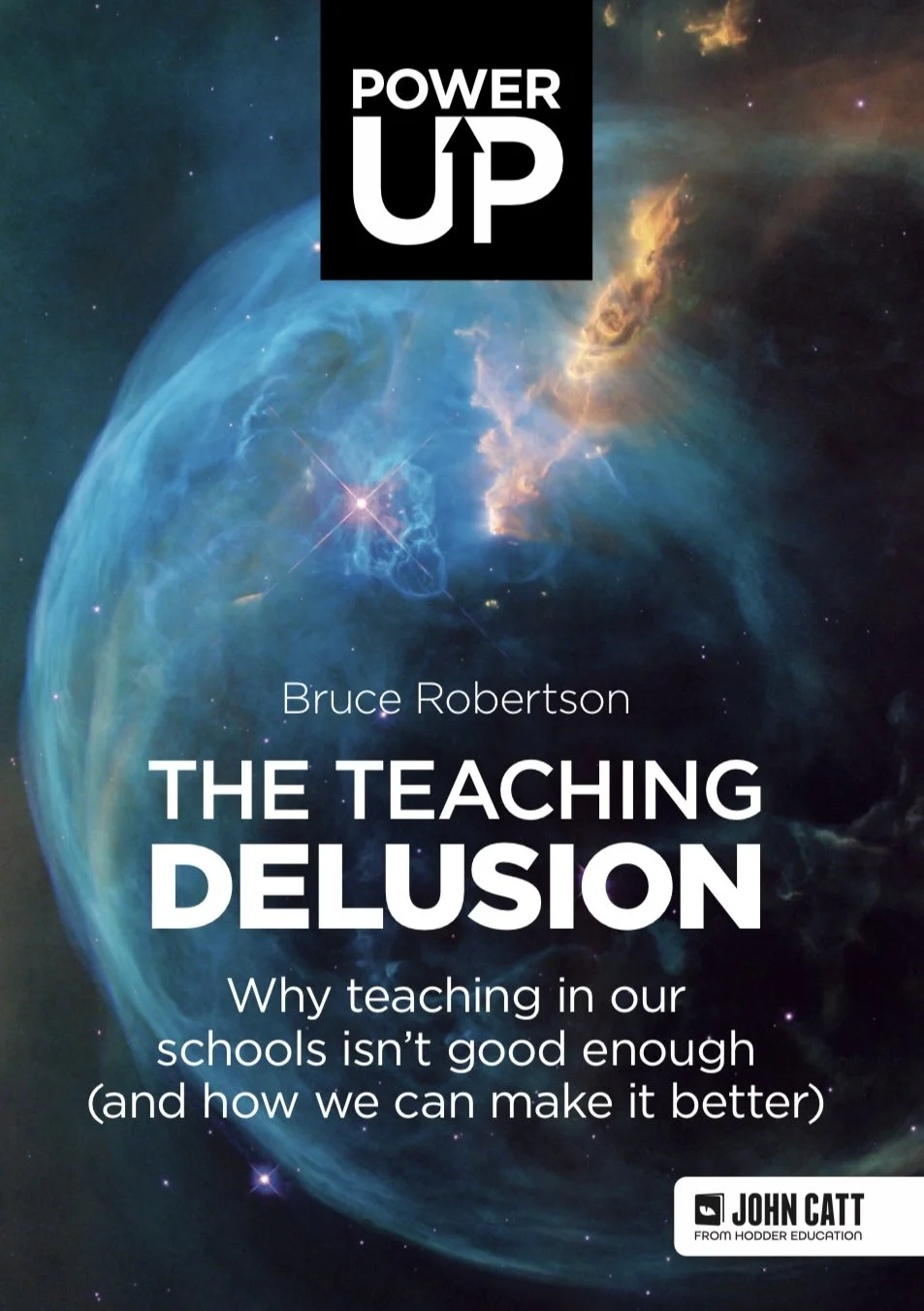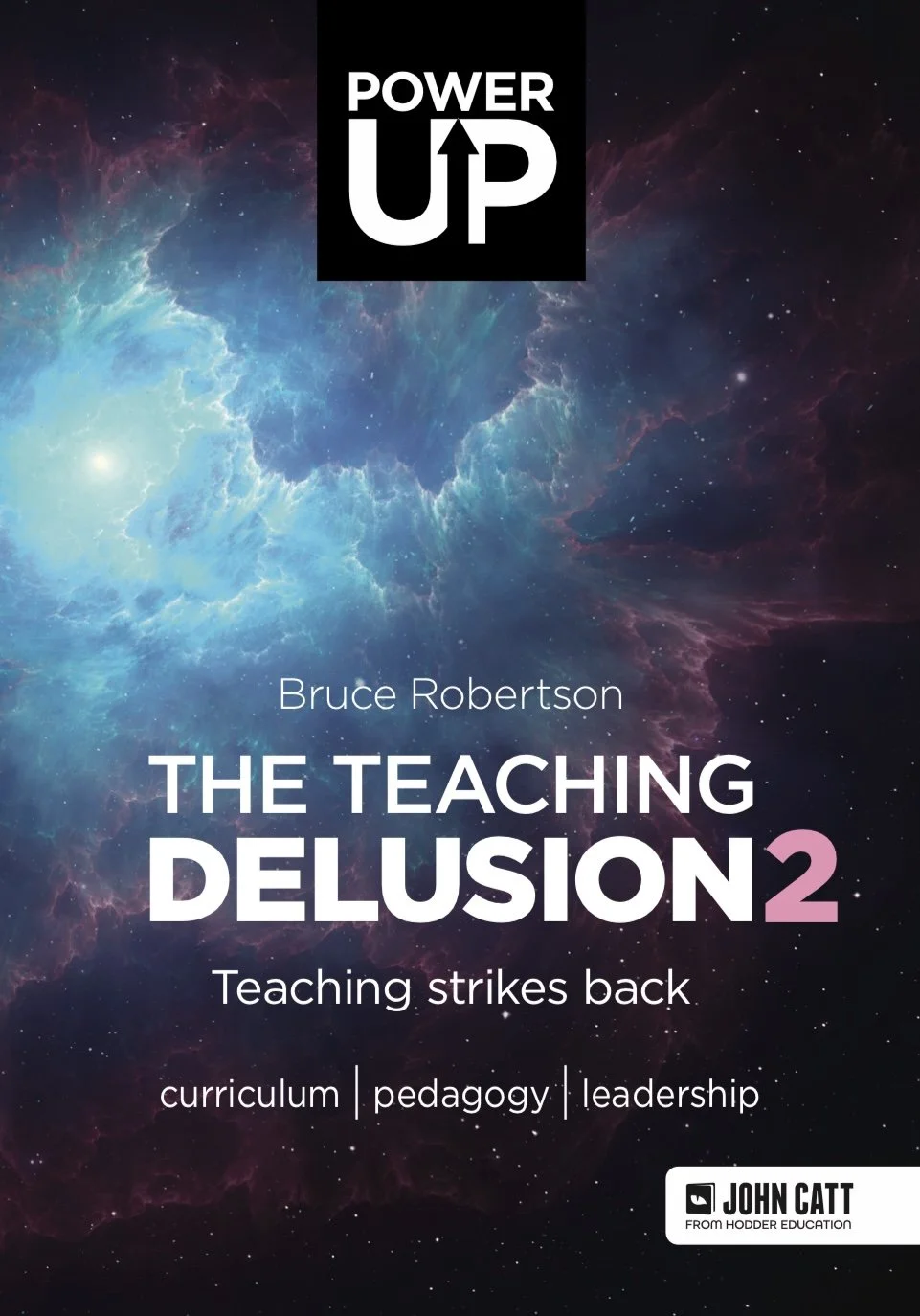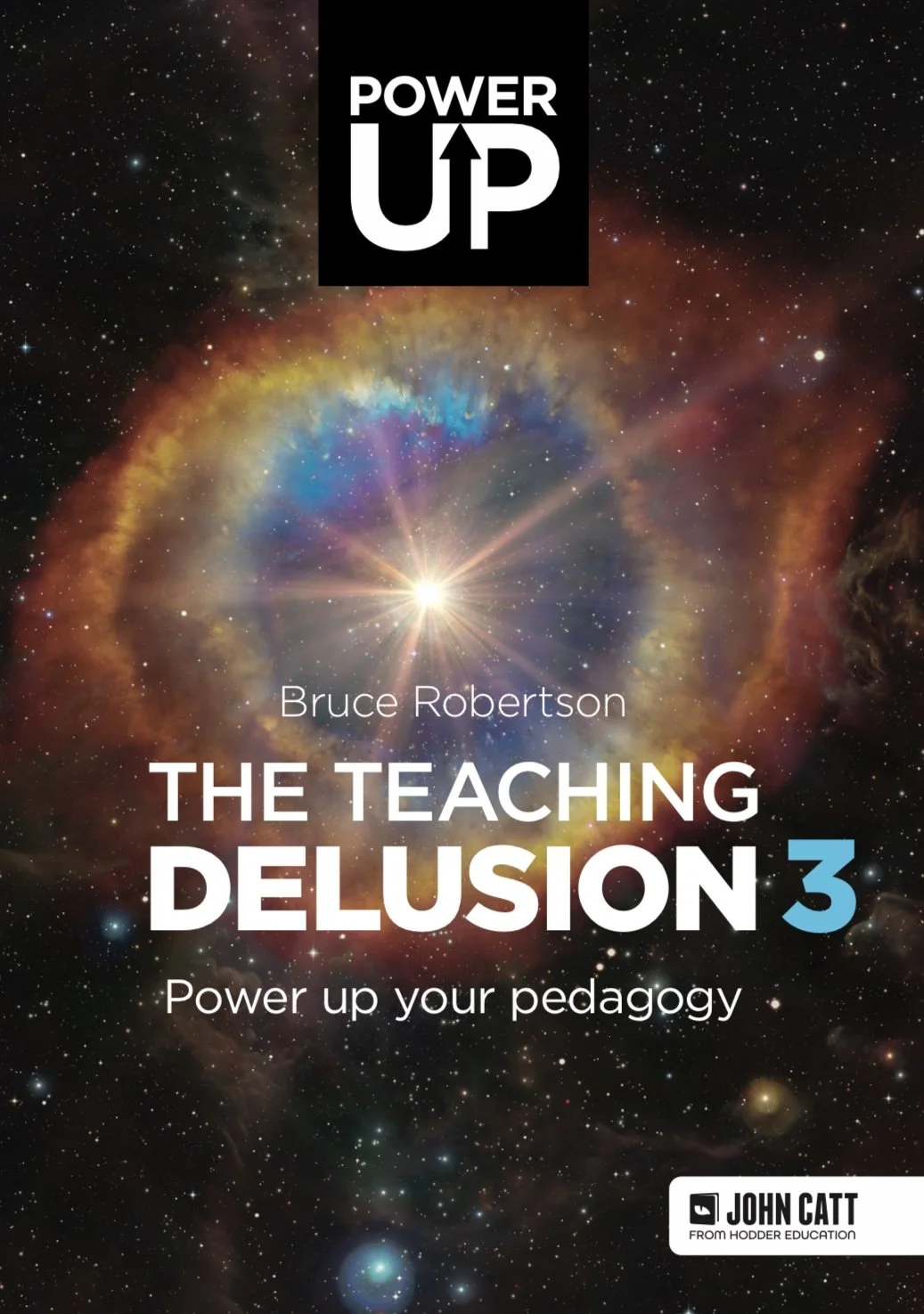Books
By Bruce Robertson
Testimonials for Power Up Your Pedagogy:
‘To all teachers I would say: study this book, learn from it and act on it.’ – Professor Rob Coe
‘Clear, practical, easy to apply and highly likely to improve your teaching practice.’ – Doug Lemov
‘Beautifully illustrated, great examples, and provocations aplenty.’ – Professor John Hattie
‘Power Up your Pedagogy is a truly superb book.’ – Tom Sherrington
Power Up Your Pedagogy is available to purchase here or via John Catt Educational.
Testimonials for Power Up Your Questioning:
‘Whether you are a veteran with decades of classroom experience, or someone just beginning a career as a teacher, you will find much to think about, and many practical, immediately applicable ways to ‘Power Up Your Questioning.’’ – Professor Dylan Wiliam
‘Every CPD library should include this book, and every teacher should read it!’ – Professor Rob Coe
‘An enticing format, a dynamism of flow throughout the book, and a worthwhile addition to the teacher toolkit.’ – Professor John Hattie
‘Power Up Your Questioning offers a masterclass in transforming classroom questioning into a powerful tool for learning.’ – Dr Carl Hendrick
Power Up Your Questioning is available to purchase here or via John Catt Educational.
Testimonials for The Teaching Delusion:
‘My suspicion is that classroom teachers will read this and feel liberated, whereas many school leaders will find good reason to pause and reflect soberly on what they have been doing for the last few years... Bruce is brave enough to say what many of us are thinking, but few dare say out loud. I can only hope others will feel similarly emboldened by this book. I can see this book being a brilliant addition to reading groups, CPD libraries, and on-line discussions... Keep it near to hand; you'll find yourself revisiting it often.’ – Robin Macpherson, teacher and author, What Does This Look Like in the Classroom?
The Teaching Delusion is available to purchase via Amazon.
Sample chapters:
Testimonials for The Teaching Delusion 2: Teaching Strikes Back:
‘We need more books like this, and they need to be more widely read - sensible, useful, practical and with the potential to transform your understanding of curriculum.’ – Tom Bennett, founder of researchED, and behaviour advisor to the Department of Education
’This excellent book nails the myth of skills being something separate from pupils knowing things. It is thought-provoking and challenging and will give many schools pause for thought. A very helpful book for any jurisdiction.’ – Mary Myatt, education writer and curator of Myatt & Co
The Teaching Delusion 2: Teaching Strikes Back is available to purchase via Amazon.
Sample chapter:
Testimonials for The Teaching Delusion 3: Power Up Your Pedagogy:
‘The range of ideas and references packed into this concise, punchy book is impressive and I can see it doing a superb job of supporting teachers at every career stage.’ – Tom Sherrington, author of The Learning Rainforest and Teaching WalkThrus
‘To my mind, this book is one of the best practical guides a teacher or school leader can have in how to firstly understand and then apply evidence in the classroom.’ – Dr. Carl Hendrick, co-author of How Learning Happens
The Teaching Delusion 3: Power Up Your Pedagogy is available to purchase Amazon.





